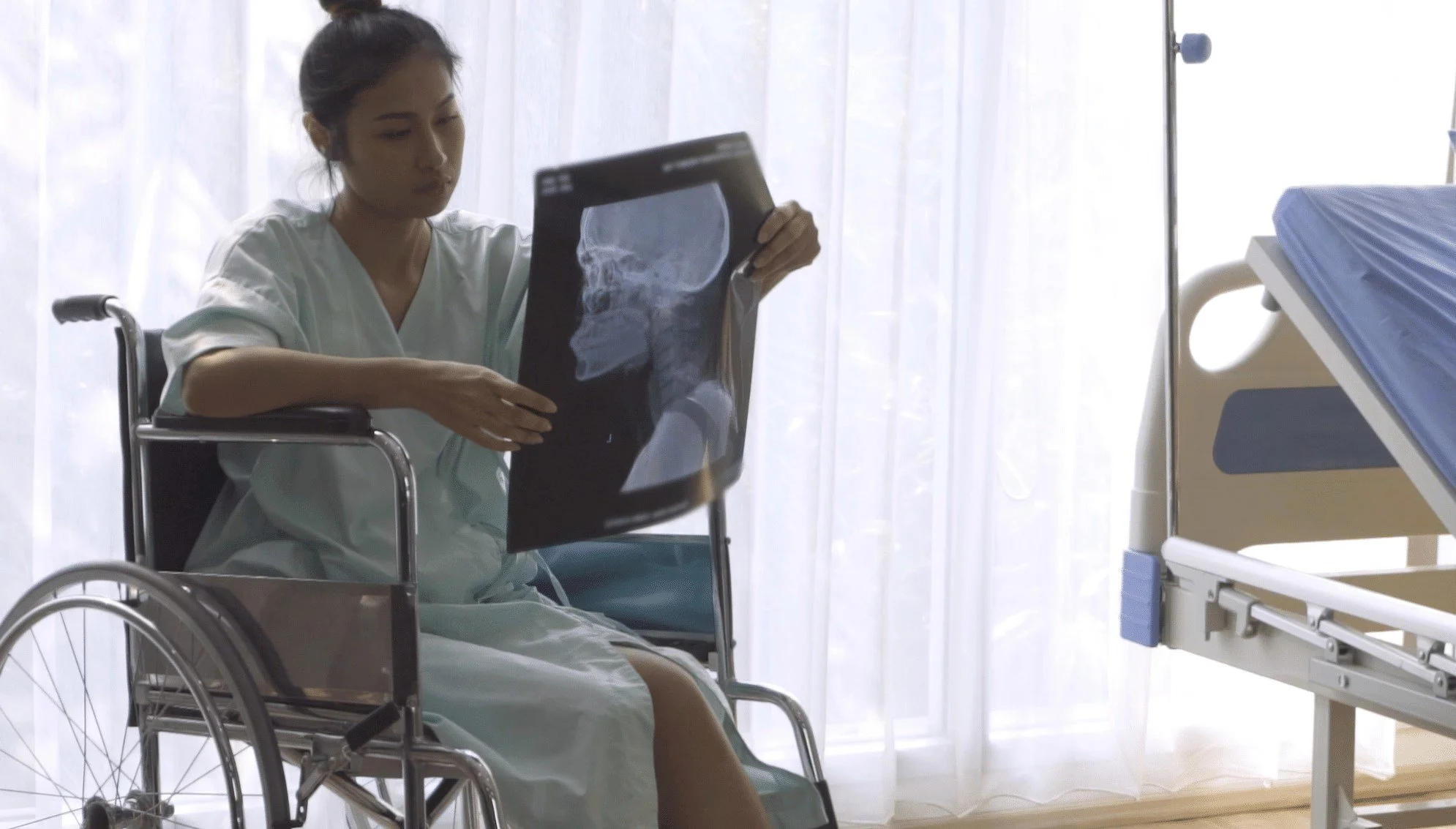TBI Speech Therapy: Recovering Speech After Traumatic Brain Injury
Traumatic Brain Injury (TBI) is a complex condition with significant implications for speech and language abilities. When an individual experiences an acquired brain injury, whether from a fall, accident, or other trauma, the impact on the brain can disrupt various cognitive functions, including communication.
TBI can affect individuals of all ages, from children to older adults. It is estimated that millions of people worldwide experience TBIs each year, making it a global health concern. The causes of a brain injury can vary, ranging from sports injuries and motor vehicle accidents to falls and assaults. Whether a mild or severe brain injury, the damage can lead to physical, cognitive, emotional, and communication impairments.
Speech and language difficulties are common consequences of a brain injury. Motor speech disorders, such as dysarthria and apraxia, can affect the coordination and control of the muscles used for speech production. Language impairments, such as aphasia and cognitive-communication deficits, can disrupt the comprehension and expression of language and impact cognitive skills related to communication. Additionally, voice and resonance disorders may arise, affecting an individual's voice's quality, pitch, and resonance.
Amidst the challenges individuals face with TBI, speech therapy is crucial to the recovery process. Early intervention and comprehensive assessment by speech-language pathologists (SLPs) are vital in identifying and addressing the specific speech and language impairments unique to each individual. Speech therapy aims to improve speech intelligibility, enhance language skills, restore effective communication, and improve the overall quality of life for individuals with a brain injury.
Throughout this article, we will delve into the common speech therapy techniques employed in TBI recovery, such as articulation therapy, language and communication therapy, cognitive-communication therapy, and voice therapy. We will also explore the importance of setting realistic goals in speech therapy, considering the individual's unique needs and aspirations.
Key Takeaways:
TBI can affect speech and language: TBI can cause difficulty speaking clearly and understanding language, as well as problems with voice and resonance.
Early intervention is important: Starting speech therapy as soon as possible after a TBI can improve the chances of successful recovery.
Speech therapy is tailored to the individual: Speech therapists will assess your specific needs and develop a treatment plan to address them.
Recovery takes time and effort: Be patient and consistent with your therapy sessions for the best results.
Family involvement is important: Family members can play a vital role in supporting recovery by providing encouragement and practicing communication strategies at home.
Understanding Traumatic Brain Injury (TBI)
Effects of TBI on Speech and Language
The Role of Speech Therapy in TBI Recovery
Common Speech Therapy Techniques for TBI Patients
Setting Realistic Goals for Speech Therapy
Collaborative Care in TBI Recovery
Understanding Traumatic Brain Injury (TBI)
Traumatic Brain Injury (TBI) is a complex and multifaceted condition that can profoundly affect an individual's physical, cognitive, and psychological well-being. The brain, the body's control center, is responsible for various vital functions such as movement, language, memory, and emotions. When the brain sustains an injury due to trauma, these functions can be significantly disrupted, leading to a wide range of impairments.
The causes of traumatic brain injuries are diverse, encompassing both accidental and intentional events. Motor vehicle accidents, including car crashes and motorcycle collisions, are a leading cause of TBI, often resulting from the abrupt deceleration or impact of an external physical force. Falls, particularly among older adults and young children, are another common cause of TBI, especially in cases where the head strikes a hard surface.
Sports-related injuries, particularly in contact sports like football and boxing, can also result in TBI, with repeated concussions posing a higher risk. Additionally, acts of violence, such as assaults and gunshot wounds, can lead to severe TBIs.
Effects of TBI on Speech and Language
Traumatic Brain Injury (TBI) can profoundly affect speech and language abilities, leading to various communication impairments. These impairments can significantly impact an individual's ability to express themselves, understand others, and communicate effectively.
Motor speech disorders are common consequences of TBI. Dysarthria, a motor speech disorder, occurs when the muscles responsible for speech production, including those involved in articulation, phonation, and respiration, are weakened or impaired. This can result in slurred speech, imprecise articulation, and difficulties with voice control.
Another motor speech disorder associated with TBI is apraxia, which affects the ability to plan and execute the precise movements required for speech. Individuals with apraxia may struggle to coordinate their articulatory muscles, leading to inconsistent speech sound production and difficulty initiating or sequencing speech sounds.
Language impairments are also prevalent in individuals with TBI. Language disorders, such as aphasia, can affect various language components, including comprehension, expression, reading, and writing. Depending on the location and extent of the brain injury, individuals with aphasia may have difficulties finding words (anomia), understanding spoken or written language, formulating sentences, or following conversations.
Cognitive-communication deficits, often associated with TBI, involve impairments in higher-order cognitive skills that impact communication. These deficits can manifest as difficulties with attention, memory, problem-solving, reasoning, and social skills, making it challenging to engage in effective and meaningful conversations.
Voice and resonance disorders can also arise following TBI. TBI-related injuries to the brain or structures involved in voice production can lead to changes in voice quality, pitch, loudness, and resonance. Individuals may experience hoarseness, breathiness, pitch instability, or reduced vocal control. Resonance disorders may occur due to disruptions in the coordination of airflow through the vocal tract, leading to hypernasality (excessive nasal resonance) or hyponasality (insufficient nasal resonance) during speech.
The Role of Speech Therapy in TBI Recovery
Speech therapy plays a crucial role in the recovery process for individuals with a traumatic brain injury. It is a specialized field focusing on diagnosing, assessing, and treating communication disorders, including speech, language, voice, and cognitive-communication impairments. For individuals with TBI, speech therapy sessions aim to improve their communication abilities, enhance speech intelligibility, and facilitate functional language skills.
Early intervention is vital in TBI recovery, and speech therapists are crucial in providing timely assessment and intervention. Speech therapists conduct a comprehensive initial evaluation to assess the specific communication challenges individuals with TBI face. These assessments help determine the impact of brain injury on speech production, language comprehension and expression, and voice quality and help improve cognitive-communication skills.
The speech therapist develops tailored treatment plans based on the assessment results to address each individual's unique needs and goals. The goals of therapy sessions may include:
Improving speech clarity and intelligibility.
Enhancing expressive and receptive language skills.
Addressing cognitive-communication deficits.
Facilitating voice and resonance control.
Common Speech Therapy Techniques for TBI Patients
Speech therapy for a traumatic brain injury patient employs various techniques to address their unique communication challenges. The specific therapy techniques used may vary depending on the individual's needs, goals, and speech and language impairments resulting from the TBI.
Articulation and Phonological Therapy
One common approach is articulation and phonological therapy. This technique focuses on improving the clarity and precision of speech sounds. Speech therapists work with individuals to strengthen the muscles involved in speech production, such as the tongue, lips, and jaw.
Therapy sessions may include exercises to enhance oral motor control, coordination, and articulatory movements. SLPs also target specific speech sound errors, helping individuals develop accurate speech production through repetitive practice, auditory discrimination, and visual cues.
Language and Communication Therapy
Language and communication therapy is another essential aspect of therapy. This technique aims to enhance an individual's comprehension and expression of language. A speech-language pathologist will work on improving vocabulary, grammar, sentence formulation, and narrative skills.
Therapy may involve various strategies, such as engaging in conversations, following instructions, practicing comprehension exercises, and using visual aids to support language learning and expression. SLPs may also employ augmentative and alternative communication (AAC) devices, such as picture boards or speech-generating devices, to facilitate communication when speech is severely impaired.
Cognitive-communication Therapy
Cognitive communication therapy is crucial for individuals with TBI, as they often experience cognitive deficits that impact communication skills. SLPs work on improving attention, memory, problem-solving, and social communication abilities.
Therapy sessions may involve structured exercises to enhance awareness and concentration, memory strategies for improving recall and comprehension, problem-solving tasks to enhance cognitive flexibility and reasoning skills, and speech therapy activities that promote effective social communication and pragmatic language use.
In addition to addressing specific cognitive deficits, it is equally important to incorporate compensatory strategies into cognitive communication therapy. These strategies may include techniques to manage attention and distractions, mnemonic devices to improve memory recall, visual aids to support comprehension, and communication scripts to facilitate social interactions.
By incorporating compensatory strategies into therapy, individuals can learn to adapt and cope with their cognitive challenges more effectively. These strategies empower them to navigate their daily lives with greater independence, confidence, and success. Moreover, the use of compensatory strategies extends beyond the therapy setting, allowing individuals to apply these techniques in real-life situations, such as during work, social engagements, or daily routines.
Voice Therapy
Voice therapy is employed when individuals with brain injury are experiencing voice and resonance disorders. SLPs work on addressing vocal quality, pitch control, loudness, and resonance issues.
Therapy techniques may include vocal exercises, breathing techniques, and strategies to reduce vocal strain and fatigue. SLPs help individuals develop optimal vocal habits, improve vocal projection, and regain control over their voice for effective communication.
Setting Realistic Goals for Speech Therapy
Setting realistic goals is critical to TBI speech therapy as it provides a roadmap for the individual's progress and helps guide the therapeutic process. Collaborative goal-setting involves the active involvement of the individual with TBI, their family members, and the speech-language pathologist to ensure that the goals align with the individual's abilities, needs, and aspirations.
When establishing goals in speech therapy, it is essential to consider both short-term and long-term objectives. Short-term goals focus on immediate improvements and address specific areas of concern. These goals are often more easily achievable, providing the individual with a sense of progress and motivation.
Long-term goals encompass broader areas of communication, targeting overall functional improvement over an extended period. They provide a vision of the desired outcomes and serve as a guiding force throughout the therapy process.
Monitoring progress is crucial in speech therapy to ensure goals remain attainable and relevant. SLPs regularly assess the individual's communication abilities, track improvements, and adjust the therapy plan. Progress monitoring allows flexibility and the opportunity to modify goals based on the individual's evolving needs and progress.
Furthermore, collaboration between the individual, their family, and the SLP is critical in goal-setting and progress monitoring. The input and perspectives of the individual and their family members provide valuable insights into their communication challenges, functional needs, and personal goals. This collaborative approach fosters a sense of ownership and empowerment, ensuring that therapy targets align with the individual's desires and maximize their engagement in the therapeutic process.
Overall, setting realistic goals in speech therapy involves a balance between challenging the individual to reach their potential while considering their unique circumstances. By establishing short-term and long-term goals, monitoring progress, and maintaining collaborative communication, speech therapy can be tailored to meet the individual's specific needs, enhance motivation, and optimize their chances for successful communication recovery.
Collaborative Care in TBI Recovery
Collaborative care is crucial to Traumatic Brain Injury (TBI) recovery, ensuring that individuals receive comprehensive support from a multidisciplinary team of healthcare professionals. In addition to speech-language pathologists, this collaborative approach involves neurologists, occupational therapists, psychologists, rehabilitation specialists, and other professionals who contribute their expertise to address the diverse needs of individuals with TBI.
The multidisciplinary approach aims to provide holistic care by addressing various aspects of TBI recovery. Neurologists play a vital role in diagnosing and managing TBI, providing insights into the underlying neurological mechanisms and potential pharmacological interventions.
Occupational therapists focus on restoring individuals' daily living skills, addressing functional impairments, and facilitating their reintegration into everyday activities. Physical therapists concentrate on improving mobility, balance, and strength through targeted exercises and interventions, aiding individuals in regaining physical independence and maximizing their overall physical functioning after a traumatic brain injury. Psychologists offer support for emotional and psychological well-being, helping individuals and their families cope with the psychological impact of TBI and fostering mental resilience.
Collaborative care extends beyond professionals to involve the individual's active participation with TBI and their family. Engaging the individual and their family as active treatment team members promotes a patient-centered approach. Their insights, concerns, and preferences are considered in the decision-making process, and their active involvement fosters a sense of empowerment and ownership over the recovery journey.
Collaborating with the family helps bridge the gap between therapy sessions and everyday life, allowing for the generalization of communication skills and support for the individual's progress outside formal therapy settings.
Frequently Asked Questions About TBI Speech Therapy
1. How soon should speech therapy start after a Traumatic Brain Injury?
Speech therapy should be initiated in the early stages after a TBI. Early intervention allows for timely assessment and identification of communication impairments, facilitating the development of a tailored therapy plan. Prompt speech therapy can help individuals with TBI progress faster in regaining their speech and language abilities.
2. Can speech therapy help with cognitive-communication deficits following TBI?
Yes, speech therapy can address cognitive-communication deficits commonly seen in individuals with a traumatic brain injury. Through targeted interventions, such as attention and memory exercises, problem-solving tasks, and social communication strategies, speech therapy can help improve cognitive skills related to communication and enhance overall communication abilities.
3. How long does it take to recover speech after a TBI?
The recovery timeline for speech after a brain injury varies for each individual. It depends on factors such as the severity of the brain injury, the extent of the impairments, and the individual's response to therapy. It is important to note that progress may occur at different rates, and recovery can continue for an extended period. Consistent treatment, goal-setting, and ongoing evaluation are essential in maximizing speech recovery outcomes.
4. What role do family members play in TBI speech therapy?
Family members play a vital role in TBI speech therapy. They provide support, encouragement, and a familiar communication environment for the individual.
Family members can also actively participate in therapy sessions, learn strategies to facilitate communication at home, and assist in the generalization of skills learned during therapy. Collaborating with family members ensures a holistic approach to recovery and enhances the individual's overall progress in regaining their speech and language abilities.
How Connected Speech Pathology Can Help
Connected Speech Pathology can play a valuable role in speech therapy by offering specialized services that enhance the overall treatment process. Here are some ways in which Connected Speech Pathology can assist in speech therapy:
Telepractice
Connected Speech Pathology utilizes telepractice or online therapy platforms to deliver speech therapy services remotely. This approach offers convenience, flexibility, and increased accessibility to individuals with TBI, especially those who may face challenges with transportation or mobility.
Telepractice allows for real-time communication between the speech-language pathologist and the individual with TBI, enabling therapy sessions to take place in the comfort of their environment.
Collaborative Communication
Connected Speech Pathology emphasizes effective communication and collaboration between the SLP, the individual with TBI, and their support system. Regular communication, progress updates, and feedback exchanges facilitate a partnership-based approach to therapy.
This collaboration ensures that therapy goals are aligned with the individual's needs and preferences, enabling a personalized and individualized treatment experience.
By embracing the principles of Connected Speech Pathology, individuals with TBI can benefit from a comprehensive and innovative approach to speech therapy. Integrating telepractice, home-based treatment, technology, and collaborative communication fosters a supportive and dynamic environment that maximizes the potential for successful communication recovery and overall well-being.
Summary
Recovering speech after a Traumatic Brain Injury is a challenging and complex journey. Still, with the support of a speech therapist, individuals can significantly progress toward regaining their communication abilities.
TBI can profoundly affect speech and language, including motor speech, language impairments, and voice and resonance disorders. However, speech therapy techniques tailored to the specific needs of individuals with TBI offer hope for improvement.
Speech therapy plays a vital role in TBI recovery through early intervention, comprehensive assessment, and collaborative goal-setting. Speech-language pathologists employ various techniques, such as articulation and phonological therapy, language and communication therapy, cognitive-communication therapy, and voice therapy, to address individuals' unique challenges with TBI.
Ultimately, recovering speech after TBI requires resilience, patience, and ongoing support. Through the dedication of individuals with TBI and their families and the expertise of speech therapy professionals, the restoration of effective communication becomes an attainable goal, enhancing the overall quality of life and facilitating successful engagement in personal and professional relationships.
About the Author
Allison Geller is a speech-language pathologist (SLP) and the owner of Connected Speech Pathology. She obtained her Bachelor’s and Master’s degrees from the University of Florida in Speech-Language Pathology. Allison has practiced speech therapy in a number of settings including telepractice, acute care, outpatient rehabilitation, and private practice. She has worked extensively with individuals across the lifespan including toddlers, preschoolers, school-aged children, and adults. She specializes in the evaluation, diagnosis, and treatment of a variety of communication disorders including receptive/expressive language disorders, articulation disorders, voice disorders, fluency disorders, brain injury, and swallowing disorders.
Allison served as the clinical coordinator of research in aphasia in the Neurological Institute at Columbia University Medical Center in New York. She is on the Board of Directors for the Corporate Speech Pathology Network (CORSPAN), a Lee Silverman Voice Treatment (LSVT) certified clinician, and a proud Family Empowerment Scholarship/Step-Up For Students provider. Allison is passionate about delivering high quality-effective treatment remotely because it’s convenient and easy to access. What sets us apart from other online speech therapy options is—Allison takes great care to hire the very best SLPs from all over the country.









